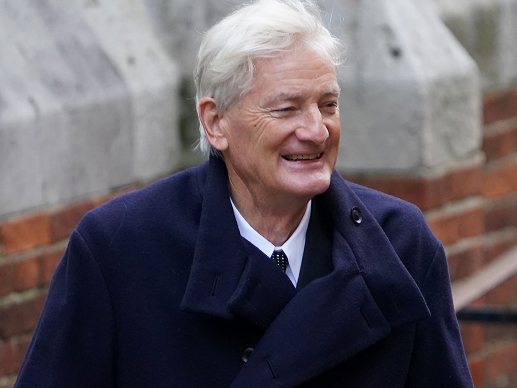
Update 29 August 2024: Dyson abandons Channel 4 News libel claim
Sir James Dyson has lost his £1m libel case against the publisher of the Mirror.
A High Court judge decided Dyson was not caused “serious harm” by the Mirror column in question, which described him as “the vacuum cleaner tycoon who championed Vote Leave due to the economic opportunities it would bring to British industry before moving his global head office to Singapore”.
Columnist Brian Reade continued: “Kids, talk the talk but then screw your country and if anyone complains, tell them to suck it up.” The article was published in print and online in January 2022.
Mr Justice Jay also said in his judgment on Friday that Mirror Group Newspapers had successfully argued the words were Reade’s “honest opinion”, a defence under the Defamation Act 2013.
An MGN spokesperson said: “We welcome today’s judgment which upholds the rights of our columnists to share honestly held opinions, even about powerful or wealthy individuals.”
Mr Justice Jay said in his judgment that the case was “not about free speech as such… but its permissible limits” after noting Dyson “does not dispute the right of his detractors to take issue with him in a free society”.
Dyson, who gave evidence at a trial in London last week, had argued that Reade’s words were a “personal attack on all that I have done and achieved in my lifetime and are highly distressing and hurtful”.
Why Dyson failed to prove he was caused ‘serious harm’ by Mirror column
But Mr Justice Jay said Dyson had been unable to demonstrate that he had suffered financial loss as a result of the column.
“Nor can he show that his philanthropic work, particularly directed to young people and schools, has been harmed in any way,” he continued.
Successful defamation cases need to cause serious harm to the reputation of the claimant, or in the case of a body that trades for profit serious financial loss.
The judge also noted that Reade’s Saturday page in the Daily Mirror is “intended to be light-hearted” and that by the time of publication most people would have already formed a view about a decision Dyson made three years previously.
“In my judgment, most readers would see ‘screwed the country’ as a comment expressed in crude, rhetorical and hyperbolic terms and would not think that Mr Reade was making any particularly illuminating observation,” he said.
Why Mirror won on honest opinion defence in Dyson libel trial
Looking at the honest opinion defence, Mr Justice Jay examined whether an honest commentator could think Dyson had “‘screwed the country’, in other words has harmed it in some way, by acting as he did”.
He said there is no need for a “clear and established evidential link in the sense of causing demonstrable economic harm” and that a “loose, symbolic nexus will do”.
“What Mr Reade may be taken to have said is something along the lines that the Claimant [Dyson] got what he wanted, namely Brexit, and one would have thought that he would now be signed up lock, stock and barrel to the future of the UK. Instead, by moving part of his business to Singapore, or even just by relocating the head office to Singapore, he has hardly cast a vote of confidence in UK Plc,” the judgment said.
“Given the Claimant’s status as a leading inventor and entrepreneur, his hypocritical and highly symbolic actions could undermine the confidence of others in the UK and harm the country thereby, and hypocrisy of this sort does not set one up as other than a poor moral example to young people.”
Mr Justice Jay added that Reade “fell short of accusing [Dyson] of dishonesty” and therefore “the scope for honest comment, however wounding and unbalanced, was very considerable indeed”.
He added that the Mirror column had therefore stayed within “the wide margin available to him” and that the honest opinion defence was therefore successful.
Mirror editor-in-chief Alison Phillips said in a diary for The New Statesman this week that it was a “big financial undertaking… to fight cases such as these,” noting that the case was worth £1m.
“But we have to defend what we believe is honest journalism. For regardless of what you think about Brexit or billionaires or Far East trade opportunities or hair dryers, a healthy democracy depends on journalists being able to air freely and honestly held opinions.”
A Dyson spokesperson said following the judgment: “The facts are that Dyson is a highly successful global technology company which employs 3,700 people in the UK, paid more UK corporation tax after 2019 than before, continues to invest vast sums in the UK, files more patents than any other company, and in 2017 founded a university in Malmesbury which has educated hundreds of undergraduates who pay no tuition fees while earning a salary and even paying tax.”
Email pged@pressgazette.co.uk to point out mistakes, provide story tips or send in a letter for publication on our "Letters Page" blog
